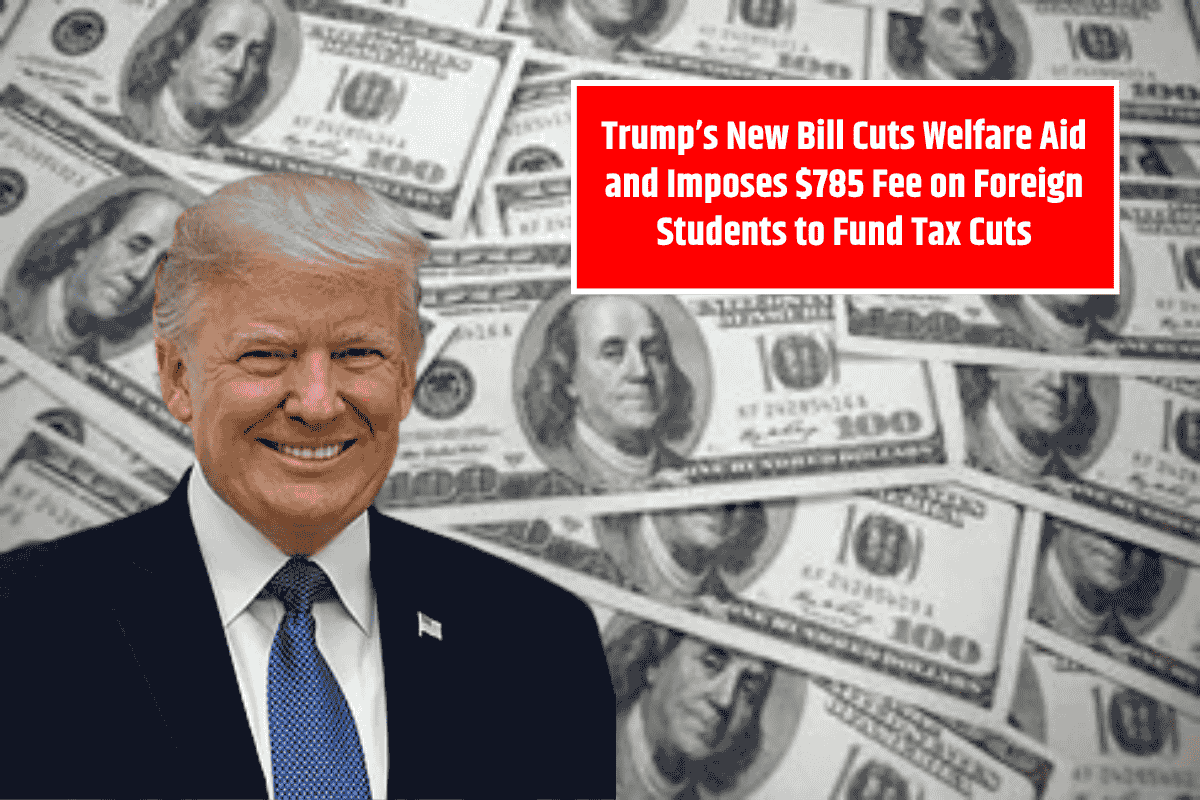The United States is facing a delicate economic situation, largely due to the policies enacted by President Donald Trump. Since taking office again in January 2025, Trump’s administration has pushed for major cuts to social assistance programs and tax cuts for the wealthiest Americans.
These measures have sparked debates about their effects on the nation’s most vulnerable citizens and foreign travelers alike. Let’s take a closer look at the impact of these changes.
Trump’s Financial Cuts and Their Consequences
Under Trump’s leadership, the government has made significant cuts across various sectors, including Medicaid, Amtrak, SNAP (Supplemental Nutrition Assistance Program), child care subsidies, rural hospitals, fire departments, and more.
These cuts have sparked criticism, especially among lower-income workers and ordinary citizens, who are seeing their costs rise while their incomes remain stagnant.
Trump has used grand names for these policies, such as “The Big One Beautiful Act,” and often frames them as steps to strengthen the nation. However, critics argue that these measures primarily benefit the wealthiest Americans while disproportionately hurting those who rely on social programs.
The cuts affect essential services that workers and families depend on, making life more difficult for many.
Areas Affected by Trump’s Cuts
The areas most affected by Trump’s cuts include:
Medicaid: Reductions in health assistance for low-income individuals.
Education subsidies: Decreased funding for public education.
Food assistance: Cuts to programs like SNAP, which help families afford food.
Housing: Reduced funding for affordable housing programs.
Environmental protection: Funding cuts for environmental and climate change initiatives.
Road and infrastructure repair: Less money for public infrastructure projects.
Child care subsidies: Reduced financial support for child care.
Veteran services: Decreased funding for services aimed at supporting veterans.
Police budgets: Reduction in funding for local police departments.
Rural hospitals: Cuts to health care services in rural areas.
Fire departments: Budget cuts for emergency services across the country.
The money saved from these cuts is often redirected toward controversial areas like defense spending, harsh immigration laws, and the elimination of renewable energy policies.
The New Visa Integrity Fee: A Burden for Foreign Travelers
One of the latest measures to be enacted is the Visa Integrity fee. Under the Big Beautiful Bill Act, which passed the House of Representatives in July 2025, anyone wishing to enter the United States on a non-immigrant visa will have to pay an additional fee.
This includes tourists, business visitors, and students from abroad. The fee starts at $250 and is seen as a financial burden for travelers, especially those coming from regions like Africa, South America, and the Middle East.
This fee is believed to be a deterrent for tourism, as people not only have to bear the cost of their trip but also pay a substantial entry fee to the United States.
Foreign Students Face High Costs to Study in the U.S.
International students are one of the hardest-hit groups under these new measures. To study in the U.S., foreign students already face significant costs, including visa application fees and program fees. With the addition of the Visa Integrity fee, the total cost for students applying for a non-immigrant visa has risen sharply.
Visa application fee: $185
Exchange Visitor Program fee: $350
Visa Integrity fee: $250
Altogether, international students who wish to study in the U.S. now have to pay $785 just for their visa application process. This new fee adds to the financial burden on foreign students, making it even more difficult for them to pursue educational opportunities in the U.S.
The Impact on the Economy and Tax Policy
Government data shows that over 10 million non-immigrant visas were issued in 2023 alone. The imposition of the Visa Integrity fee is part of a broader strategy to generate more revenue for the U.S. government.
While critics argue that these measures disproportionately affect lower-income individuals and international travelers, Trump’s administration defends them as necessary steps to strengthen the nation’s financial position.
The increasing financial pressure on everyday people, combined with the burden on foreign students and travelers, raises questions about the long-term impact of these policies on the U.S. economy.
With cuts to essential services and the introduction of new fees, many wonder how much more will be required from ordinary citizens and visitors before they can truly feel the effects of economic recovery.
Under Trump’s leadership, the U.S. has implemented a series of fiscal policies that prioritize cuts to social programs, tax breaks for the rich, and the imposition of new fees on foreign travelers and students.
While the government frames these measures as necessary for fiscal stability, they have a direct and often negative impact on vulnerable populations, including the working class and international students.
The Visa Integrity fee, along with cuts to Medicaid, education, and other vital services, highlights the ongoing tension between the administration’s fiscal policies and the needs of ordinary Americans.
